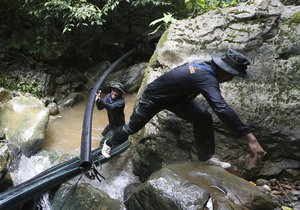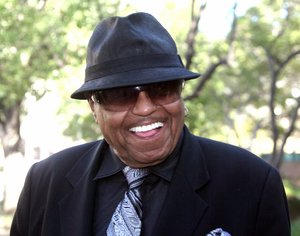Please tell us which country and city you'd like to see the weather in.

Béjar
Béjar is a town and municipality in the province of Salamanca, western Spain, part of the autonomous community of Castile and León. It lies 72 km (45 mi) had a population of 15,016 as of 2007.
History
The first inhabitants of what is now Béjar were the Vettones who settled an area to the south of the city now known as La Antigua around 400 BC. The city was made part of Roman Hispania in the beginning of the 1st century BC. In AD 713, the city was taken by Muslim Berbers (Moors) from the Visigoths and in the 11th century it was conquered by King Alfonso VI of Castile. Following this, numerous fortress and the walls, many which still stand, were constructed to repel frequent Arab incursions that took place until the definitive expulsion of the Muslims.
The city was later the center of the Duchy of Béjar ruled by the powerful House of Zúñiga.
Name
The name Béjar is of pre-Roman origin. The original form was Bigerra and is said to mean "place of the beehives." "Béjar" could be an adaption from the Spanish word abeja, which means "bee." An older spelling of the city's name is Béxar. In medieval documents, Vexar is found also.
Radio Stations - Béjar
SEARCH FOR RADIOS
Badger
I took you down to the station
And I bought your ticket
Lord, I hate to see you go
And as you walk away
Please don't turn around, 'cause
I know you'd hate to see me cry
But I put you on that bus
And as it pulls away
You know I'd really rather be...
Oh, anywhere but here
Nowhere else but here
Anywhere but here
I wish I could take you there, now
Sit around the hotel room
We're playing cards for nickels
It should always be this way
But I'm just a man
And you're a bit too crazy
And being together's always hard
So I put you on that bus
But as it pulls away
You know I'd really rather be...
Oh, anywhere but here
Nowhere else but here
Anywhere but here
I wish I could take you there, now
'Cause I sure as hell don't wanna be here
Oh, now that you're gone
Oh, now that you're gone
Oh, now that you're gone
So now you're gone
And it's my fault
And now that you're gone
I just had this thought
That I can hardly wait to see you
I can hardly wait to be...
Oh, anywhere but here
But I'm just a man
And you're a bit too crazy
And being together is always hard
Lord knows I'd rather be...
Oh, anywhere but here
Nowhere else but here
Anywhere but here
I wish I could take you there, now
'Cause I sure as hell don't wanna be here
Oh, now that you're gone
Oh, now that you're gone
Oh, now that you're gone
I can hardly wait to see you

Béjar
Béjar is a town and municipality in the province of Salamanca, western Spain, part of the autonomous community of Castile and León. It lies 72 km (45 mi) had a population of 15,016 as of 2007.
History
The first inhabitants of what is now Béjar were the Vettones who settled an area to the south of the city now known as La Antigua around 400 BC. The city was made part of Roman Hispania in the beginning of the 1st century BC. In AD 713, the city was taken by Muslim Berbers (Moors) from the Visigoths and in the 11th century it was conquered by King Alfonso VI of Castile. Following this, numerous fortress and the walls, many which still stand, were constructed to repel frequent Arab incursions that took place until the definitive expulsion of the Muslims.
The city was later the center of the Duchy of Béjar ruled by the powerful House of Zúñiga.
Name
The name Béjar is of pre-Roman origin. The original form was Bigerra and is said to mean "place of the beehives." "Béjar" could be an adaption from the Spanish word abeja, which means "bee." An older spelling of the city's name is Béxar. In medieval documents, Vexar is found also.
Latest News for: bejar
This week in Missoula show announcements: Neko Case, Dinosaur Jr.
 Missoulian
02 Jun 2018
Missoulian
02 Jun 2018
Traffic dispute ends with motorcyclist hurt, bike destroyed
Residential real estate transfers, April 29
Seven Area Women Among 183 charged with Welfare Fraud
10 New Albums to Stream Now: Janelle Monae, Willie Nelson and More Editors' Picks
State inspector general charges 183 with welfare fraud in first quarter of 2018
2 from Lancaster County among 183 in Pennsylvania charged with welfare fraud
Man who pleaded guilty to lewd acts with girl, 11, will get 3 years in prison
Tennis honors for 3 Blue Hose players
Excellence in Business at Presbyterian College
Elliott Management Discloses Stake in Commvault
Sam Cozen Showcase features small-college stars
Karatekas set boycott of Asian Games
- 1
- 2
- 3
- 4
- 5
- Next page »






